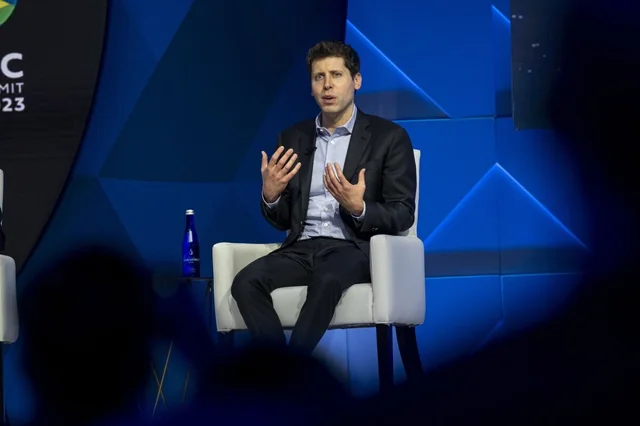The recent power struggle at OpenAI, which unfolded following the dismissal of co-founder Sam Altman, has come to a conclusion, with Altman making a return. However, the resolution raises questions about the future of the organization.
It’s as if OpenAI has undergone a transformation, leaving some to ponder if it has evolved into a different entity altogether, not necessarily for the better. Sam Altman, the former president of Y Combinator, is back in charge, but the legitimacy of his reinstatement is under scrutiny. The new board of directors is drawing criticism for its lack of diversity, consisting entirely of white males, and there are concerns about the potential shift from OpenAI’s original philanthropic goals to more profit-driven interests.

The original structure of OpenAI featured a six-person board, including Altman, chief scientist Ilya Sutskever, president Greg Brockman, entrepreneur Tasha McCauley, Quora CEO Adam D’Angelo, and Helen Toner from Georgetown’s Center for Security and Emerging Technologies. The board had control over the for-profit side of OpenAI, guided by a nonprofit with a stake in decision-making for activities, investments, and overall direction, all in line with the mission of ensuring the benefits of artificial general intelligence for humanity.
However, with the involvement of investors and powerful partners, challenges emerged. Altman’s sudden removal led to discontent among OpenAI’s backers, including Microsoft CEO Satya Nadella and Vinod Khosla of Khosla Ventures, who expressed a desire for Altman’s return. Legal action was even contemplated by several major backers if negotiations failed to reinstate Altman.
After days of turmoil, a resolution was reached. Altman and Brockman returned, subject to a background investigation. A new transitional board was established, meeting one of Altman’s demands. OpenAI is set to maintain its structure, with capped profits for investors and a board empowered to make decisions not solely driven by revenue.
Despite claims of victory for the “good guys,” questions linger about the legitimacy of Altman’s return. Accusations of not being consistently candid and prioritizing growth over mission were leveled against him. The new board, consisting of Bret Taylor, Adam D’Angelo, and Larry Summers, raises concerns about diversity and inclusivity, with all-male initial appointments potentially violating European board seat regulations.
The lack of diversity in the board composition has drawn criticism from AI academics and experts. Concerns about Summers’ history of making unflattering remarks about women further fuel apprehensions. Critics argue that a board lacking deep knowledge of responsible AI use in society, coupled with a lack of diversity, is not a promising start for a company as influential as OpenAI.
The decision not to include well-known AI ethicists like Timnit Gebru or Margaret Mitchell in the initial board appointment process raises questions about OpenAI’s commitment to addressing challenges related to AI bias and responsible use. The absence of such voices may impact the board’s ability to consistently prioritize these important issues.

